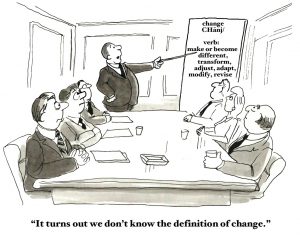Western Australia’s Parliament heard more about the State’s investigation into work-related mental health on June 26 2018.
Category: depression
Still treating the symptoms of mental health

Suicide prevention continues to be a growth area in rainsingfund-raising and awareness raising. On 17 May 2018, Prime Minister Malcolm Turnbull released a video supporting a treadmill challenge in support of suicide prevention. It seems an odd campaign when there have been various walks and other events in the past that have more of a public statement that being on a treadmill in a gym. But this is not the only odd suicide awareness event. Last week, Winslow Constructions had a program launch that was also a little odd and a campaign that is worthwhile, as far as it goes.
In May 2018, Winslow Constructions held a media event on one of its residential construction projects to the north of Melbourne.
Toughen up, Princess
 Today the Medical Journal of Australia released a media statement entitled:
Today the Medical Journal of Australia released a media statement entitled:
“FIFO workers’ psychological distress “alarming””
What is more alarming is that the levels of psychological distress have remained high even though there have been inquiries into the mental health of Fly-In Fly-Out workers in Western Australia and Queensland since 2014!!
Western Australian research undertaken by
Unsafe systems of management
 Excessive workplace stress in the medical profession is well documented but stress is often seen as a minor workplace hazard that is fairly easily dealt with by holidays, for instance, or is dismissed as an “occupational hazard” or part of the entry to the profession or just part of the culture, with the implication that nothing can change. Only recently have work-related suicides garnered serious research attention and these incidents are now being openly discussed, as this April 2018 article in the MJA Insight shows.
Excessive workplace stress in the medical profession is well documented but stress is often seen as a minor workplace hazard that is fairly easily dealt with by holidays, for instance, or is dismissed as an “occupational hazard” or part of the entry to the profession or just part of the culture, with the implication that nothing can change. Only recently have work-related suicides garnered serious research attention and these incidents are now being openly discussed, as this April 2018 article in the MJA Insight shows.
The author of the opinion piece, Dr
FIFO, Fairness and the Future

SafetyAtWorkBlog’s article about the safety of Fly-In, Fly-Out workers has generated some discussion through its mention on LinkedIn which has raised some interesting points.
A common thread seems to be that it is impractical to build townships and facilities to support remote mine workers and which also provide services to workers’ families. One commenter posed these questions:
“Are we going to drag the FIFO families out to these areas, build houses for them, along with all the associated infrastructure to support them, for what may be only a 3-5 year construction program? Is it fair to drag the partners and families of FIFO workers away from their family supports (parents/friends, etc)? Away from decent medical care? Away from schools/universities?”
This may have been intended as rhetorical but prompts a question that I frequently ask when I consult with clients – “why not?”
Why don’t employers pay attention to psychological harm?
 The Safety Institute of Australia (SIA) is an active supporter of Safe Work Australia‘s (SWA) recent attention to the risks of psychosocial hazards in the workplace. On 10 April 2018, the SIA reiterated this support and its anticipation of a new SWA guide on the issue but the media release includes a statement that may be a little too polite towards employers and not sufficiently inquisitive about the safety professional’s role.
The Safety Institute of Australia (SIA) is an active supporter of Safe Work Australia‘s (SWA) recent attention to the risks of psychosocial hazards in the workplace. On 10 April 2018, the SIA reiterated this support and its anticipation of a new SWA guide on the issue but the media release includes a statement that may be a little too polite towards employers and not sufficiently inquisitive about the safety professional’s role.
The CEO of the SIA,
How bad is workplace mental health and what can be done about it
 The recent RTW Forum in Melbourne had one speaker who analysed the workers compensation data for mental health claims. Dr Shannon Gray was able to draw some clear statements on workplace mental health from Australia’s national claims data and provide clues on what the workplace safety profession needs to do to reduce psychological harm.
The recent RTW Forum in Melbourne had one speaker who analysed the workers compensation data for mental health claims. Dr Shannon Gray was able to draw some clear statements on workplace mental health from Australia’s national claims data and provide clues on what the workplace safety profession needs to do to reduce psychological harm.
Gray and other speakers at the forum had access to a lot more data than has been available in the last few decades and they, rightly, continued to stress caution in analysis.
